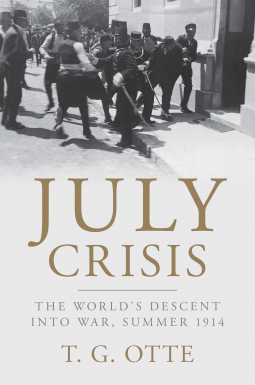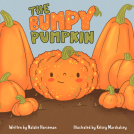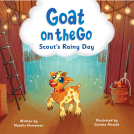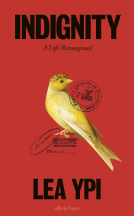
July Crisis
The World's Descent into War, Summer 1914
by T. G. Otte
This title was previously available on NetGalley and is now archived.
Send NetGalley books directly to your Kindle or Kindle app
1
To read on a Kindle or Kindle app, please add kindle@netgalley.com as an approved email address to receive files in your Amazon account. Click here for step-by-step instructions.
2
Also find your Kindle email address within your Amazon account, and enter it here.
Pub Date 22 Jul 2014 | Archive Date 1 Jul 2014
Description
4.10.2014: Publisher's note: This title is now downloadable via adobe digital downloads--when opening the file, please make sure that your reader is authorized and up-to-date, and make sure to open this file directly with your reader. If you have any other problems, please let us know.
An unprecedented panorama of Europe on the brink
July 1914 is a definitive account of the crisis that led to the First World War. Offering a multi-national perspective on the events of that fateful summer, it focuses on the often haphazard and chaotic nature of decision-making in the capitals of Europe, showing how Europe descended into a largely inadvertent war. It is a riveting story of misperceptions and deliberate deceptions; of “doves” and “hawks” who struggled to comprehend a complex international situation; and of the collective failure of Europe’s ruling elites.
Going behind the scenes—from Berlin to London to St. Petersburg and beyond—July 1914 offers a powerful antidote to assumptions of the war’s inevitability.
T. G. Otte is a professor of history at the University of East Anglia.
Advance Praise
“By returning meticulously to sources that many historians have ignored, and by setting the July 1914 crisis in its proper historical context following on from the 1912 and 1913 crises that are also badly under-studied, one of Britain’s brightest new-generation historians, Thomas Otte, has come up with a startlingly original yet wholly believable new interpretation of the true causes of the Great War. This is historical scholarship at its best, with the bonus of being written with a gently ironic yet extremely funny wit, in a subject that isn’t naturally given to it.”
—Andrew Roberts, author of The Storm of War (2010)
Marketing Plan
Advance reading copies available
National print, broadcast, digital media campaign
Social media promotion on Facebook and Twitter
Advance reading copies available
National print, broadcast, digital media campaign
Social media promotion on Facebook and Twitter
Available Editions
| EDITION | Paperback |
| ISBN | 9781107064904 |
| PRICE | US$29.99 (USD) |
Average rating from 19 members
Featured Reviews
 Michael P, Reviewer
Michael P, Reviewer
When arriving a bit late for a dinner party, there is that awkward and embarrassed feeling the diner quickly gets as he steps into a group heavy with discussion. If he has any savoir faire, he would recognize that he has just entered an already raging conversation and would be clearly foolish to speak too authoritatively on the present topic. It is almost the same sensation with regard to Thomas Otte’s new 555 page hardback, “July Crisis: The World's Descent into War, Summer 1914.” Otte, Professor of Diplomatic History at the University of East Anglia, has crafted a fine, scholarly, heavily footnoted retelling of the immediate events that preceded the conflagration of the First World War. It doesn’t take too many minutes of reading to swiftly grasp one has stepped into a long, impassioned discussion and that the author is now making his case.
In “July Crisis” Otte walks the reader, slowly, thoroughly and thoughtfully, through the days of 28 June to 4 August 2014. The prosecutors, players, participants, and politicians are all paraded before the reader, unveiling motivations, schemes, plots, blunders and faux pas that turned the assassination of Franz Ferdinand into a world war. The author reads and retells the events through the lens that what happened then might help us now; for “in many ways, the concerns and events of that year and the years preceding it are more immediate to us today ( . . . ). At the beginning of the twenty-first century, as multiple power centres compete for economic, military and political influence and when suicide bombers have become a feature of modern life, the contours of the international landscape of 1914 look more familiar now than those of the era of Nixon, Brezhnev, and Carter” (524).
Otte is very careful to keep his re-examination of the events from slipping into mere schoolyard playground blame-shifting. As he notes repeatedly, there were many dynamics involved that accelerated the emergency: “By moving the actions of individual monarchs, politicians and generals into the foreground, by examining the ethos of the ruling elite with its emphasis on ‘honour’ and prestige, and by examining the accelerating dynamic of the unfolding crisis, this book has offered a comprehensive and original reassessment of the July Crisis” (522). The absence of coherent strategies, regional and self-interested narrow-mindedness, intentional miscommunications from ambassadors – both to their home and to their host countries, almost every Power being driven by a self-perceived sense of weakness, and virtually complete failure of state-craft, were many of the ingredients that concocted a cataclysmic cocktail. As Otte summarizes, “War had come as a result of individual decisions and a rapid series of moves and countermoves by the chancelleries of Europe, and set against the backdrop of recent shifts in the international landscape and anticipated further changes in the years to come” (506). In the end, “July Crisis” gives a clear and impressive re-telling of the events that led up to the First World War.
Two themes that reverberated through the book seem to me to be significant. First, “[p]ersonality mattered” (133). Whether it was the indecisiveness of Bethmann Hollweg, the highly emotional inflammations of Wilhelm II, the conflictions of Sazanov, or the intentional miscommunications of Tschirschky or Paléologue, personality mattered. The other theme was how clear-eyed so many players were that these actions would bring about “a war which will destroy for decades to come the culture of all Europe” (380), and yet they blazed on to that end.
As a non-specialist in this area, my reading “July Crisis” was like stepping late into that dinner discussion that was already in full swing. Nevertheless, Otte is neither demeaning nor scolding, but slowly and helpfully brings both the specialist deeper into his reassessment and the non-specialist into the discussion. As the centenary of the First World War is now upon us, Otte has given us a great resource to appreciate the events that exploded onto our world, and a way to untangle and gain from those events. I gladly encourage each one reading this review to race out and purchase a copy of “July Crisis” as quickly as possible!
Thanks to the fine folks of Cambridge University Press who provided an e-copy of the book for this review.
Readers who liked this book also liked:
Natalie Horseman
Children's Fiction, Outdoors & Nature, Parenting, Families, Relationships
Lieve Snellings
Children's Nonfiction, Outdoors & Nature
Lieve Snellings
Children's Nonfiction
Sabine Meyer
General Fiction (Adult), Sci Fi & Fantasy, Teens & YA


















